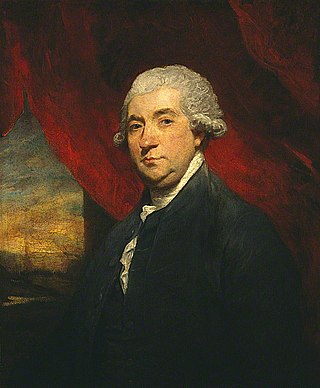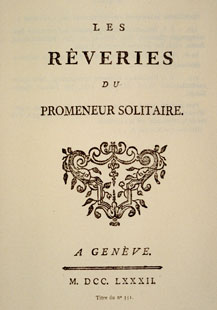
Jean-Jacques Rousseau was a Genevan philosopher (philosophe), writer, and composer. His political philosophy influenced the progress of the Age of Enlightenment throughout Europe, as well as aspects of the French Revolution and the development of modern political, economic, and educational thought.

François-Marie Arouet, known by his nom de plumeM. de Voltaire, was a French Enlightenment writer, philosopher (philosophe), satirist, and historian. Famous for his wit and his criticism of Christianity and of slavery, Voltaire was an advocate of freedom of speech, freedom of religion, and separation of church and state.

In moral and political philosophy, the social contract is an idea, theory or model that usually, although not always, concerns the legitimacy of the authority of the state over the individual. Conceptualized in the Age of Enlightenment, it is a core concept of constitutionalism, while not necessarily convened and written down in a constituent assembly and constitution.

James Boswell, 9th Laird of Auchinleck, was a Scottish biographer, diarist, and lawyer, born in Edinburgh. He is best known for his biography of his friend and older contemporary, the English writer Samuel Johnson, which is commonly said to be the greatest biography written in the English language. A great mass of Boswell's diaries, letters, and private papers were recovered from the 1920s to the 1950s, and their ongoing publication by Yale University has transformed his reputation.

Paul-Henri Thiry, Baron d'Holbach, known as d'Holbach, was a Franco-German philosopher, encyclopedist and writer, who was a prominent figure in the French Enlightenment. He was born Paul Heinrich Dietrich in Edesheim, near Landau in the Rhenish Palatinate, but lived and worked mainly in Paris, where he kept a salon. He helped in the dissemination of "Protestant and especially German thought", particularly in the field of the sciences, but was best known for his atheism and for his voluminous writings against religion, the most famous of them being The System of Nature (1770) and The Universal Morality (1776).

Filippo Antonio Pasquale de' Paoli was a Corsican patriot, statesman, and military leader who was at the forefront of resistance movements against the Genoese and later French rule over the island. He became the President of the Executive Council of the General Diet of the People of Corsica and wrote the Constitution of the state.

William James Durant was an American historian and philosopher, best known for his 11-volume work, The Story of Civilization, which contains and details the history of Eastern and Western civilizations. It was written in collaboration with his wife, Ariel Durant, and published between 1935 and 1975. He was earlier noted for The Story of Philosophy (1926), described as "a groundbreaking work that helped to popularize philosophy".
The philosophes were the intellectuals of the 18th-century European Enlightenment. Few were primarily philosophers; rather, philosophes were public intellectuals who applied reason to the study of many areas of learning, including philosophy, history, science, politics, economics and social issues. They had a critical eye and looked for weaknesses and failures that needed improvement. They promoted a "republic of letters" that crossed national boundaries and allowed intellectuals to freely exchange books and ideas. Most philosophes were men, but some were women.
Popular sovereignty is the principle that the leaders of a state and its government are created and sustained by the consent of its people, who are the source of all political legitimacy. Popular sovereignty, being a principle, does not imply any particular political implementation. Benjamin Franklin expressed the concept when he wrote that "In free governments, the rulers are the servants and the people their superiors and sovereigns".

Catharine Macaulay, was an English Whig republican historian.

Emile, or On Education is a treatise on the nature of education and on the nature of man written by Jean-Jacques Rousseau, who considered it to be the "best and most important" of all his writings. Due to a section of the book entitled "Profession of Faith of the Savoyard Vicar", Emile was banned in Paris and Geneva and was publicly burned in 1762, the year of its first publication. During the French Revolution, Emile served as the inspiration for what became a new national system of education.
Classical republicanism, also known as civic republicanism or civic humanism, is a form of republicanism developed in the Renaissance inspired by the governmental forms and writings of classical antiquity, especially such classical writers as Aristotle, Polybius, and Cicero. Classical republicanism is built around concepts such as liberty as non-domination, self-government, rule of law, property-based personality, anti-corruption, abolition of monarchy, civics, civil society, common good, civic virtue, popular sovereignty, patriotism and mixed government.

The Reveries of the Solitary Walker is an unfinished book by Genevan philosopher Jean-Jacques Rousseau, written between 1776 and 1778. It was the last of a number of works composed toward the end of his life which were deeply autobiographical in nature. Previous elements in this group included The Confessions and Dialogues: Rousseau, Judge of Jean-Jacques.

Considerations on the Government of Poland — also simply The Government of Poland or, in the original French, Considérations sur le gouvernement de Pologne (1782) — is an essay by Swiss philosopher Jean-Jacques Rousseau concerning the design of a new constitution for the people of Poland. It represents Rousseau's last venture into political theory.

Corsica is an island in the Mediterranean Sea and one of the 18 regions of France. It is the fourth-largest island in the Mediterranean and lies southeast of the French mainland, west of the Italian Peninsula and immediately north of the Italian island of Sardinia, the nearest land mass. A single chain of mountains makes up two-thirds of the island. As of January 2024, it had a population of 355,528.

The history of Corsica goes back to antiquity, and was known to Herodotus, who described Phoenician habitation in the 6th century BCE. Etruscans and Carthaginians expelled the Phoenicians, and remained until the Romans arrived during the Punic Wars in 237 BCE. Vandals occupied it in 430 CE, followed by the Byzantine Empire a century later.

Corsican nationalism is the concept of a cohesive nation of Corsica and a national identity of its people. The Corsican autonomy movement stems from Corsican nationalism and advocates for further autonomy for the island, if not outright independence from France.

An Account of Corsica is the earliest piece of writing related to the Grand Tour literature that was written by the Scottish author James Boswell. Its first and second editions were published in 1768, with a third edition within twelve months. The full title given to the journal is An account of Corsica, the journal of a tour to that island and memoirs of Pascal Paoli.

Emmanuel Arène was a French journalist, playwright and republican politician who was deputy for Corsica for many years and senator of Corsica in his last years. He was involved in scandals over maritime mail contracts and the Panama Canal funding. Towards the end of his career he dominated Corsican politics. Arène was also a prolific and successful journalist, wrote short stories and wrote for the theatre.

Waiting for the Dawn: A Plan for the Prince is a political work written by Huang Zongxi (1610-1695), known as "The Father of Chinese Enlightenment". This radical text openly criticises the absolute monarchy prevailing in China, and is interpreted by contemporary authors as a precursor of theories of civil rights and calls for a democratic political system. Huang first began writing the book in the eighteenth year of the reign of Shunzhi in the Qing Dynasty (1661), and completed it in the first year of Kangxi (1662), about a century before The Social Contract by Jean-Jacques Rousseau. It would become highly influential during the late Qing’s Wuxu Reform and other attempts at establishing a constitutional monarchy in China.
















